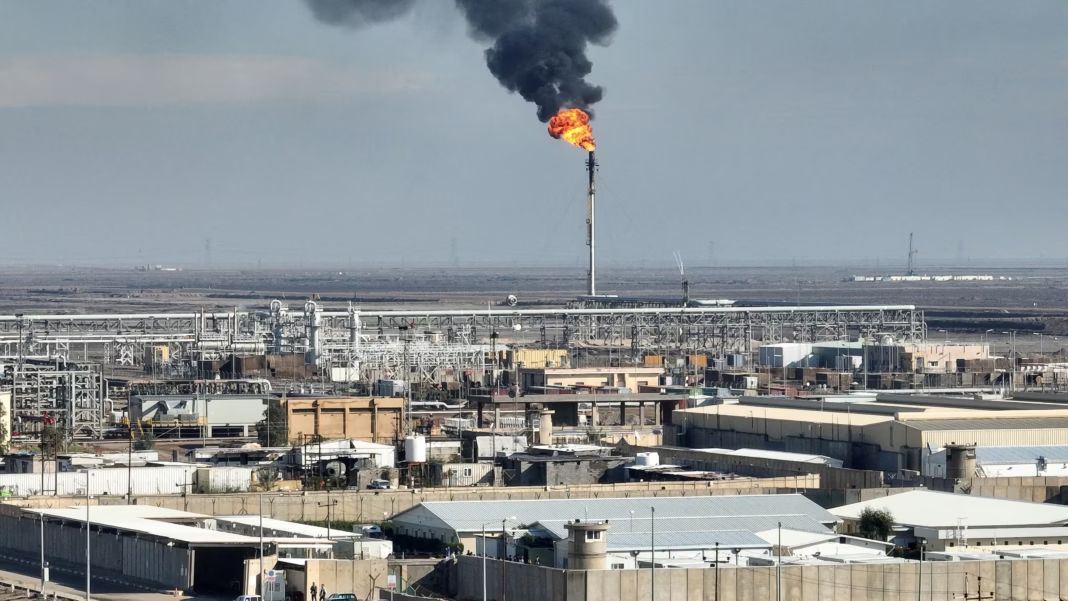Baker Hughes and Halfaya Gas Company signed a major deal in Iraq to reduce gas flaring. The agreement covers an innovative flare gas recovery system at the Bin Umar gas processing plant in the southeast of the country. This project will cut flaring, protect the environment, and transform wasted gas into useful products.
The deal builds on a previous understanding between the two companies for the Bin Umar development project. They also finished a pre-Front End Engineering and Design study that supported the collaboration. This new step highlights Iraq’s efforts to end routine flaring and push forward its energy transition. Moreover, the project will help Iraq reach its environmental goals.
The partners plan to recover up to 300 million standard cubic feet of flared gas daily. That equals around 32 billion kilowatt-hours each year. This output can power nearly 2 million Iraqi households. Instead of burning the gas, the system will convert it into treated dry gas, liquefied petroleum gas, and condensates. These products will serve both domestic needs and export markets.
Baker Hughes and Halfaya Gas Company also agreed to expand cooperation on upstream oilfield development. Baker Hughes will use its Oilfield Services & Equipment expertise to strengthen the projects. Both companies will also explore building local maintenance and repair services. In addition, they will consider a new industrial manufacturing collaboration to boost Iraq’s energy infrastructure.
Leaders from both sides stressed the importance of this cooperation. Hussein Saihood, CEO of Raban Al Safina for Energy Projects, said the alliance proves a strong commitment to Iraq’s energy future. He noted that reducing emissions, securing energy supplies, and building a sustainable infrastructure will create lasting prosperity.
Alessandro Bresciani, senior vice president of Baker Hughes, explained that improving efficiency in traditional energy remains vital. He added that reducing emissions from current resources will drive sustainable growth. He also called the agreement a clear example of progress through collaboration at scale.
Halfaya Gas Company develops the Bin Umar project under a long-term contract with South Gas Company, part of Iraq’s Ministry of Oil. This structure ensures alignment with Iraq’s energy strategy.
Overall, the output recovery system belongs to Baker Hughes’ wider portfolio of emissions reduction technologies. These solutions improve efficiency, strengthen productivity, and deliver more value across global operations. Iraq will benefit from these tools as it moves to modernize its energy sector.





